Mavs Film Room: How Dallas Pulled Off Game 5 Defensive Masterclass vs. Jazz
The Utah Jazz put together what likely is their worst 48 minutes of offense in their Game 5 loss to the Dallas Mavericks. As a result, they now trail the series 3-2 with the need to keep the series alive at Vivint Arena in Game 6.
The head of the snake for the Jazz is Donovan Mitchell, but he's been largely neutralized in this series. He started off by still getting some big scoring nights on struggling efficiency to his overall production being diminished on both fronts.
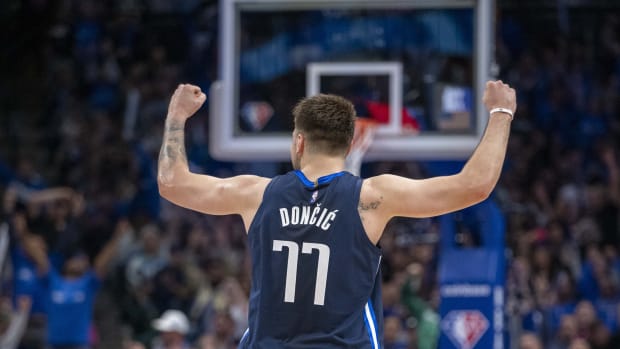
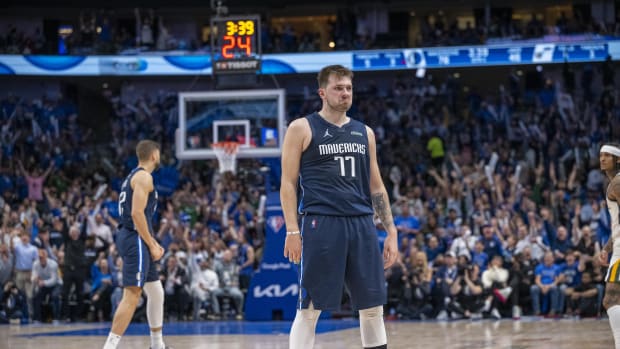
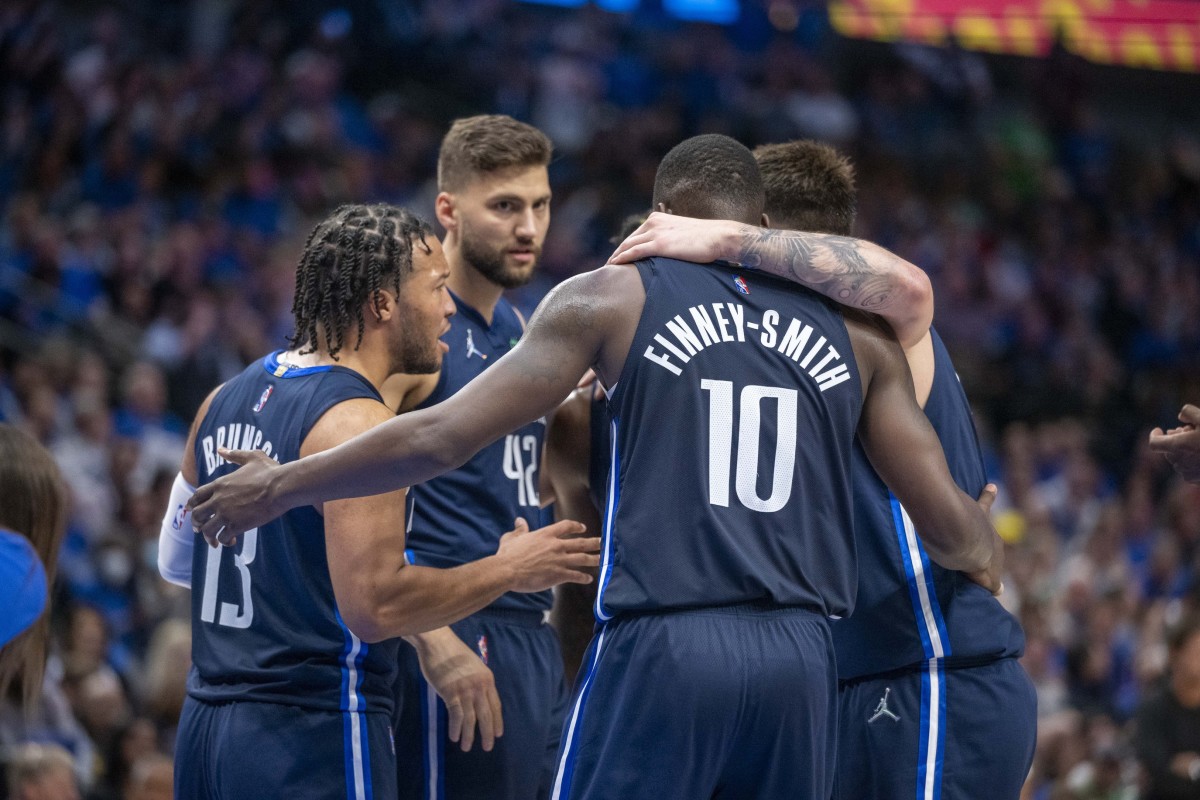
Mitchell was contained to a playoff career-low nine points while shooting just 4-15 from the floor and 0-7 on 3s. To make matters worse, he got to the free throw line for just one attempt and turned it over four times. He ultimately limped off the court late in the game, ending his night.
The Mavericks have the necessary personnel to take away what Mitchell tends to turn to most frequently in the playoffs. He's been able to embrace a change in play style to counter — allowing the defense to continue to make life hard on him within the half-court.
It all starts with having a wing player like Dorian Finney-Smith to disrupt Mitchell. Finney-Smith has the length to contest Mitchell on his shot creation from deep while also having the quickness to recover when Mitchell tries to shift him with his ball handling.
“I give credit to [Dorian] Finney-Smith,” Mitchell said. “I’ve been saying that since the beginning of the year, pretty much. This wasn’t one of my best games of my career, let alone the playoffs. The looks I have gotten haven’t been the easiest. You got to find a way.
There wasn't a single play in Game 5 that featured Mitchell running a high ball screen with Gobert that ended with him taking a shot attempt. Part of the reason? The Mavericks are taking away his air space for pull-up 3s and taking away the finish at the rim. He's producing just 0.652 points per possession in these situations in the series.
The Mavericks have made it a point to pressure Mitchell's 3-point attempts regardless of how he's getting them. Between having to change directions before raising to fire or forcing a deep attempt, he just hasn't been afforded chances to take comfortable shots.
When Mitchell has turned the corner to get into the paint, the Mavericks have often prevented him from having a free run at the rim. By blocking off the paint, he's had to settle for some tough right-hand floaters. These are much lower percentage shots than he's accustomed to getting.
Aside from transition, the main situations Mitchell has been genuinely efficient have been isolation and at times, attempting to attack Doncic by using his man as a screener. However, these possessions have often been negatively impacted by bigs clogging the lane.
When Mitchell had room to operate on an early possession drawing Doncic on a switch, he was able to get into the gap. The end result was Mitchell getting to his spot for a tightly contested floater. So even when success has occurred, the circumstances still have been challenging.
The Mavericks will live with pressured floaters from Mitchell if that's the best the Jazz are able to get out of him initiating pick-and-switch plays with a wing screener. Even those aren't happening often, though. The big near the basket affords the Mavericks the chance to help.
Perhaps most interesting of all about Mitchell's shot distribution in Game 5 was how eight of his 19 possessions occurred in transition. Over half of his scoring alone came from a pair of early attacks in the first quarter when he had some space to operate.
This is where the Jazz encounter somewhat of an existential crisis. Going small would create floor spacing for Mitchell to operate, but would risk their defense bottoming out. There just isn't enough impact as a unit embracing either style — affording them a limited ceiling.
With the Mavericks not having to load up aggressively on any one player in the Jazz offense, they've been often able to get out on shooters to pressure 3-point attempts. Utah has been contained to shooting just 27.8 percent on 3s, which ranks dead last among all teams in the playoffs.
”They’ve scrambled extremely hard,” Mitchell said.” It’s a lot to continuously run teams off the line, and they’ve done a good job of it. They’ve made us uncomfortable.”
The Mavericks have made it a point to prevent a sharpshooter like Bogdanovoic from getting a simple catch-and-shoot look. Using a fly-by or running him off the line before working to recover for a contest against the reload 3 has helped to make him uncomfortable.
The limitations of Gobert's offensive skill-set often allow the defense to not have to deviate from their base scheme. He is inconsistent with being able to make a proper seal of the defense in the paint on the roll, he is a slow decision-maker making reads on rim rolls, and he is inefficient when he isn't able to get to a simple right-hand finish.
It's an indictment on Gobert's offensive skill-set and the Jazz offense if the Mavericks not only feel this comfortable using small personnel to be able to scramble as a unit but are getting tremendous results doing it. Gobert has to make smaller players pay and is unable to do so.
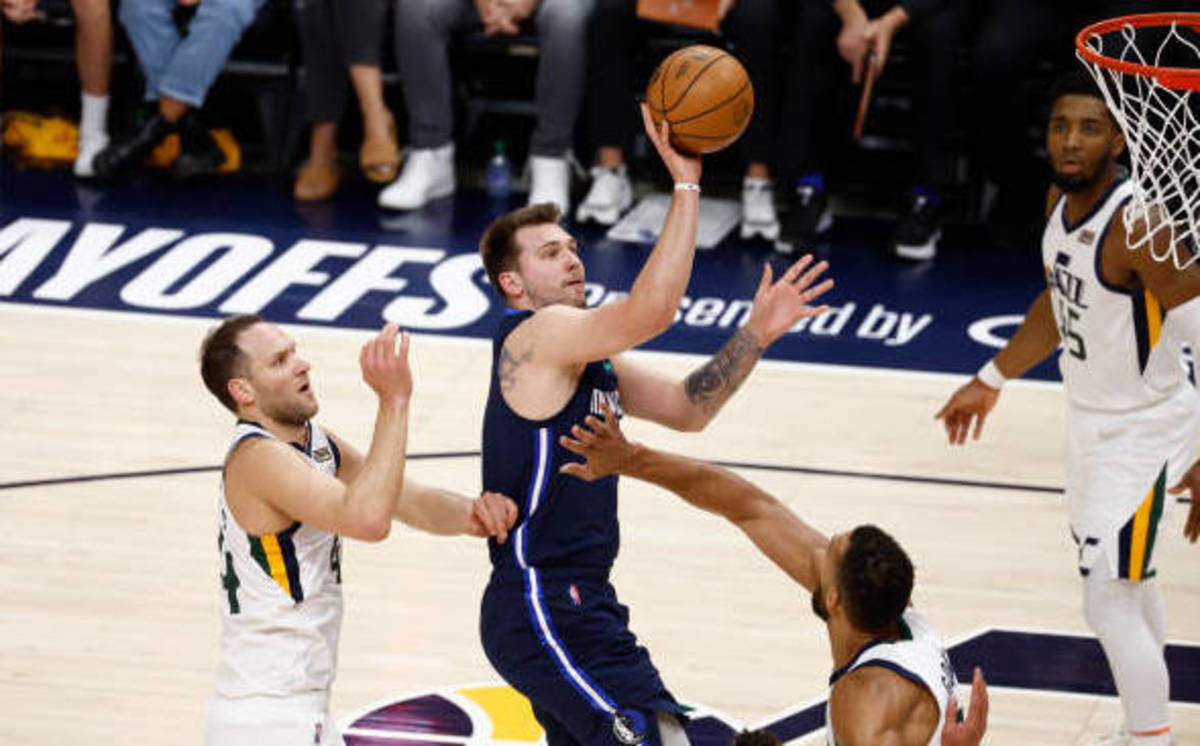
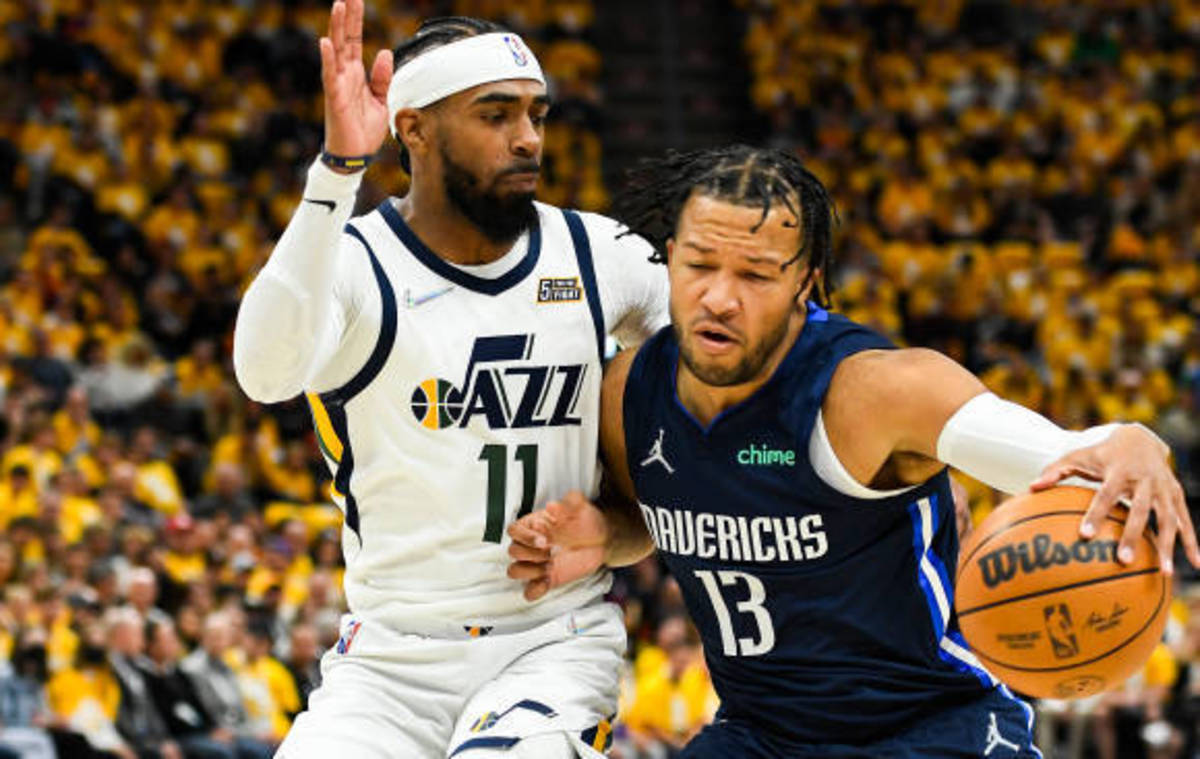
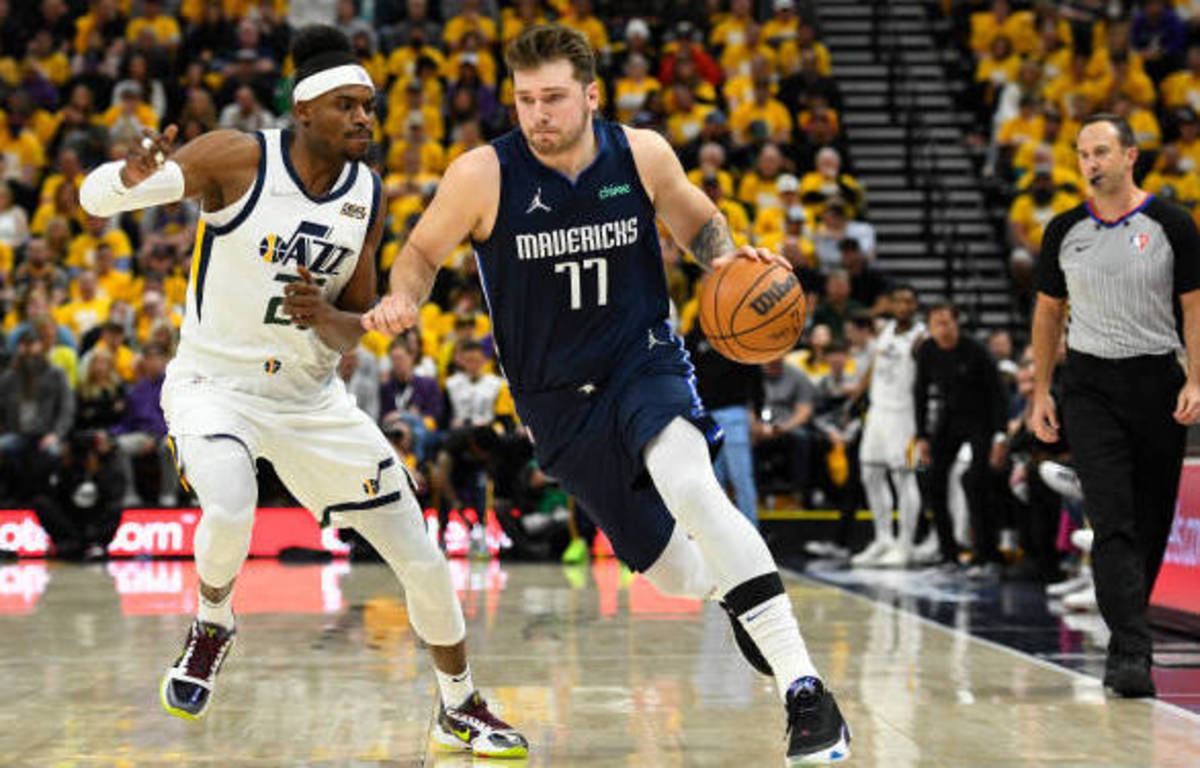
On the side of the floor, the Mavericks' offense is able to spread the floor by going small to negate the excellence Gobert provides as a paint protector. As a result, Gobert's lack of offensive ability has essentially diminished his defensive impact. Dallas can win the 3-point shooting battle while benefiting from better initiation from their top options.
The strategy the Jazz have attempted of trying to pick up Doncic full-court with Bogdanovic has seemingly worn him down — reducing his impact on offense. Also, Mike Conley does not appear capable of initiating offense to consistently make a positive play against the Mavericks' defense.
There isn't a secondary threat for the Jazz to turn to that can consistently produce. Earlier in the series, involving Bogdanovic on post-ups was a solid option, but he's been neutralized since the Mavericks have taken away the drop step. Jordan Clarkson has attacked the gaps well, but he doesn't command the Mavericks to get out of their base coverages.
The Jazz will need to get creative in their half-court offense to come up with counters for the Mavericks' base coverages. They have to get Mitchell going somehow. They hit rock bottom in Game 5 with how badly they were bottled up within the half-court and are running out of time to turn things around.
